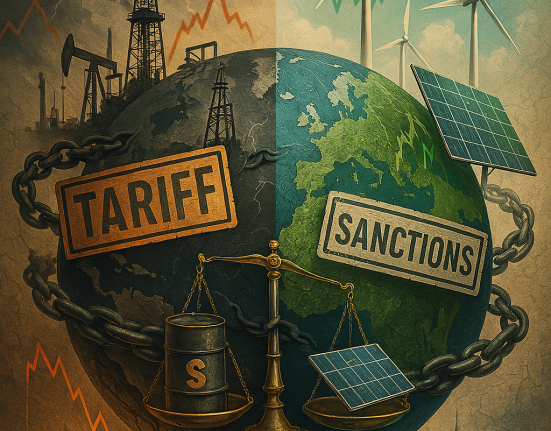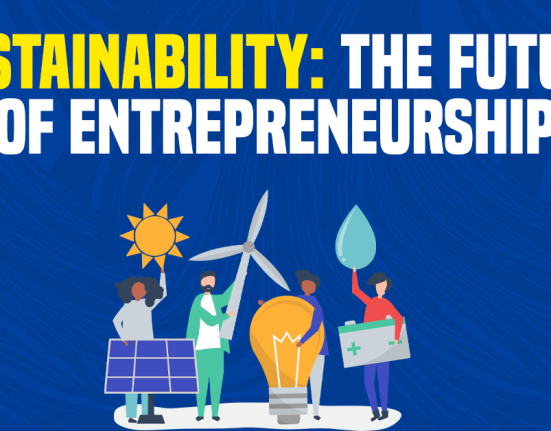In recent years, the fintech industry has experienced explosive growth in recent years, reshaping the landscape of traditional financial services through technological advancements. However, as the global focus shifts towards a decarbonized economy to combat climate change, the fintech sector faces both unprecedented disruptions and remarkable opportunities.
In this blog post, we will explore in detail the impact of decarbonization on the fintech industry, while highlighting the potential for technological innovations to foster sustainability and drive business success.
Disruption in Traditional Financial Services
The transition to a decarbonized economy necessitates significant changes in traditional financial services. As industries and businesses adopt sustainable practices, there is a growing demand for green financing options and environmentally responsible investments. This shift alters the playing field for banks, insurance companies, and other financial institutions. Those slow to adapt risk losing relevance and market share, as customers increasingly prioritize eco-conscious financial products and services.
Furthermore, the reevaluation of carbon-intensive assets can lead to significant write-offs, impacting the balance sheets of financial institutions. Institutions must strategically pivot their portfolios to align with the evolving landscape, incorporating sustainable investments that offer long-term value and reduced environmental impact.
Opportunities for Fintech Startups
The decarbonization movement presents unparalleled opportunities for agile and innovative fintech startups. These forward-thinking companies can lead the charge in creating cutting-edge solutions that cater to the emerging needs of a decarbonized economy. Here are some areas where fintech startups can thrive:
- Carbon Offset Marketplaces: Fintech platforms can develop marketplaces that connect carbon offset providers with businesses and individuals seeking to offset their carbon footprint. These platforms enable seamless transactions, facilitating investments in renewable energy projects, afforestation initiatives, and other carbon offset opportunities.
- Green Lending Platforms: Fintech startups can introduce digital lending platforms dedicated to financing sustainable projects and green initiatives. By leveraging alternative data and innovative risk assessment models, these platforms can extend credit to businesses and individuals committed to eco-friendly practices.
- Sustainable Investment Platforms: Fintech can democratize sustainable investments by offering user-friendly platforms that enable retail investors to build ESG-focused portfolios aligned with their values and risk preferences.
Leveraging Big Data for ESG Investments
Environmental, Social, and Governance (ESG) investments have gained significant traction in the shift toward a decarbonized economy. Fintech companies are uniquely positioned to leverage the vast amount of data available to assess a company’s ESG performance and help investors make informed decisions.
By harnessing the power of big data and artificial intelligence, fintech platforms can provide personalized ESG investment recommendations, aligning clients’ portfolios with their sustainability goals. These platforms can analyze a company’s carbon emissions, water usage, labor practices, and diversity metrics, enabling investors to allocate capital to companies with strong environmental and social stewardship.
Blockchain for Transparent Supply Chains
Blockchain technology offers unparalleled transparency and traceability, making it a powerful tool for fostering sustainable supply chains. In a decarbonized economy, consumers increasingly demand to know the environmental impact of the products they purchase. Fintech companies can utilize blockchain to track supply chains, verifying the authenticity of eco-friendly claims and reducing the carbon footprint of goods and services.
By recording every step of the supply chain on an immutable blockchain ledger, companies can ensure transparency and accountability. Consumers gain confidence in the sustainability of products, leading to increased demand for eco-friendly offerings.
Digital Payments and Carbon Neutrality
Digital payment solutions have already reduced the need for physical cash, leading to a smaller carbon footprint. However, fintech companies can take it a step further by embracing carbon-neutral practices. By partnering with renewable energy providers or supporting carbon offset projects, fintech firms can ensure their digital transactions leave a positive impact on the environment.
Implementing carbon-neutral initiatives not only aligns fintech companies with the decarbonization movement but also resonates positively with environmentally-conscious consumers, enhancing brand reputation and customer loyalty.
The Role of Regulators
In a decarbonized economy, regulators are likely to focus on sustainability standards and green finance initiatives. Fintech companies should actively collaborate with regulators to shape policies that encourage and incentivize environmentally friendly financial products. By participating in discussions, fintech firms can help design regulations that strike the right balance between promoting innovation and safeguarding the environment.
Conclusion
The fintech industry has the potential to become a driving force in the transition towards a decarbonized economy. As traditional financial services face disruptions, fintech startups are uniquely positioned to lead with innovative solutions. By leveraging technologies like big data, blockchain, and digital payments, fintech companies can create a sustainable financial ecosystem that benefits both businesses and the planet.
In the journey towards a greener future, collaboration between fintech innovators, regulators, and other stakeholders will be crucial in realizing the full potential of technology in shaping a decarbonized economy. Embracing the opportunities presented by decarbonization can position fintech companies as trailblazers in building a sustainable and prosperous financial landscape.
Read also: Driving a Sustainable Future: Clean Energy Innovations and the Global Decarbonization Scenario











Leave feedback about this